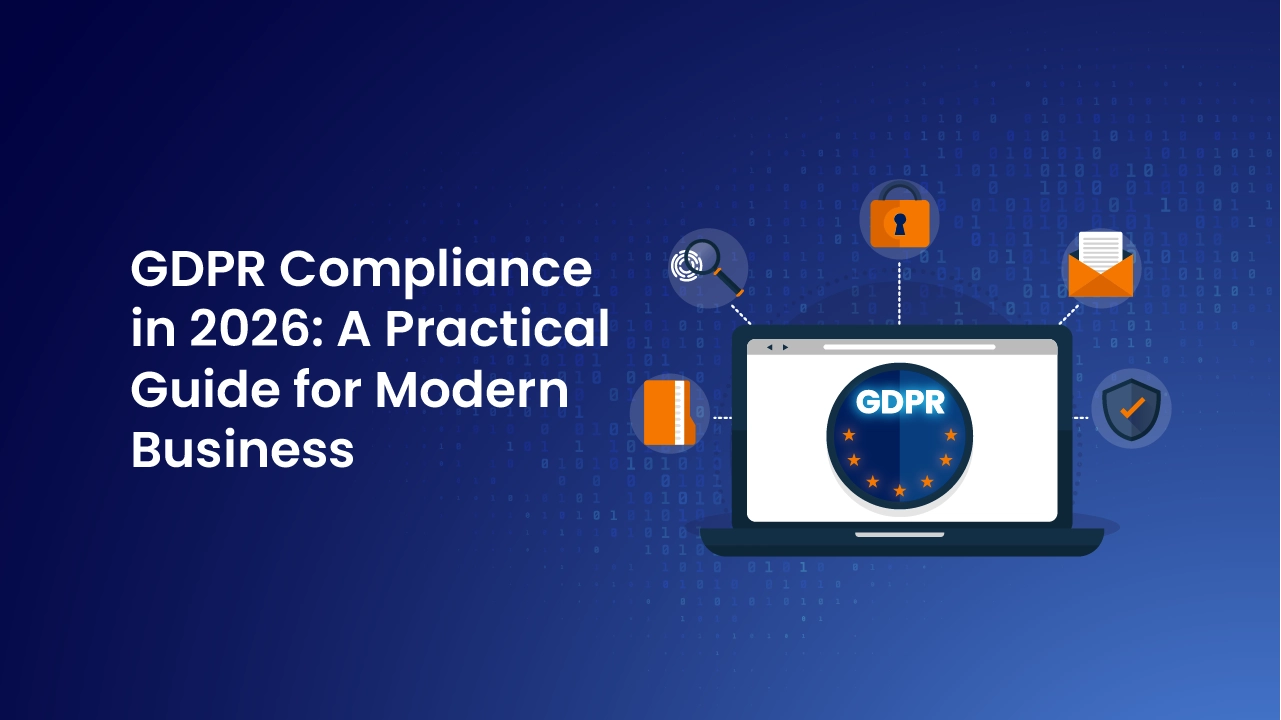The internet has dramatically changed during the recent years and with that the way we communicate and how we handle everyday tasks has also changed. Today, we send emails to one another, we share important documents with people, we pay bills by entering our personal details and even we purchase goods by entering our mobile numbers and addresses and we do all of this without a second thought. But have you ever stopped and wondered how much personal data have you shared online so far? Or did you ever think about what happens to that information?
We’re talking about banking information, contacts, addresses, social media posts, and even your IP address and the sites that you’ve visited, everything is stored digitally. And, the companies tell us that they’re collecting this type of information for the sole purpose of serving you better next time with more targeted and relevant communications. That means, they collect all this information to provide you with a better customer experience.
But, what do you think? Is that what they really use this data for?
This is the question that has been asked several times and later it was answered by the EU in May 2018 when a new European privacy regulation named as “GDPR” got enforced and when it permanently changed the way you collect, store, and use the customer data.
However, in a study of more than 800 IT and business professionals responsible for the data privacy at companies it was found that more than 50% of businesses know nothing about the GDPR. In fact, more than 27% companies have not even begun working on making their organization GDPR compliant.
It is understandable about a small brick and mortar store as they may find it difficult to prepare for GDPR. But, the research also found that even 60% of the tech companies aren’t ready for GDPR yet. However, no matter whether you’re in the tech industry, travel industry, retail industry or an entrepreneur, this guide is for you as here we’re explaining what GDPR is and how will it impact your business. Here we’re also giving a few tips on how you can prepare for GDPR compliance.
What is GDPR?
GDPR (General Data Protection Regulation) is a new regulation which was introduced in the EU and which has been implemented in the local privacy laws in the EU region and the EEA region. However, it will apply to all those companies that are selling to or storing the personal information about the citizens in Europe.
However, what GDPR means is that –
The citizens of the EU and EEA will now have greater control over their personal data and the assurances that their information will be securely protected across Europe.
GDPR directive explains that personal data is any form of information that is related to a person such as –
- A name,
- A photo,
- An email address,
- Bank details,
- Updates on social
- networking websites,
- Location details,
- Medical information, or
- A computer IP address.
However, it also explains that there is no distinction between the personal data of individuals in their private roles, public roles, or work roles because the person is the same person.
What are the business implications of GDPR?
This is a new data protection regulation that puts the consumer on the seat of the driver. However, the task of complying with this new data protection regulation falls upon the businesses and organizations.
What falls under GDPR compliance?
Do you know, GDPR Compliance applies to all kinds of businesses and organizations, especially the ones that have been established in the EU? However, it also doesn’t depend on whether the data processing takes place in the EU or not. In fact, the non-EU established organizations will also be subjected to GDPR in several cases, for instance, if your business offers goods or services to the citizens in the EU, then your business will be subjected to GDPR.
Hence, all the organizations and companies that are working with personal data are required to appoint a data protection officer who will be in charge of the GDPR compliance. In fact, there are heavy penalties for the companies and organizations which don’t comply with the GDPR fines.
And the EU government and EU people are taking GDPR extremely seriously. Just checkout the following stats –
- British Airways and Marriott International have been facing some heavy duty fines due to being unable to fail to comply with GDPR compliance that amount around hundreds of millions euros.
What is the impact of GDPR on Customer Engagement of EnterpriseTech Companies?
In the first place, the conditions for obtaining the consent are strict under the GDPR requirements because the individual has the right to withdraw his/her consent at any time. In fact, there is a presumption that that consent will also not be valid unless the separate consents will be obtained for the different processing activities.
This means before you take an action you have to be able to prove that the individual has agreed to that certain action. Hence, with GDPR it is not allowed to assume or to add a disclaimer as providing an opt-out option isn’t enough.
Hence, GDPR has changed a lot of things for the companies including the way your sales teams prospect. It has also changed the way in which the marketing activities are managed. In fact, the companies have also had to review the business processes, the applications, and forms to become GDPR compliant with the double opt-in rules as email marketing’ best practices.






